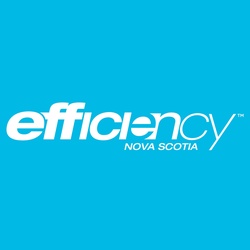
Value-adding Equipment Program
At a glance
- No Condition
- Open Date : May 1, 2024
- Closing date : June 30, 2024
- Agriculture, forestry, fishing and hunting
- Nova Scotia
- For-profit business
- Sole proprietorship
- $ 30,000 minimum revenue
- All organization sizes
- Indigenous Peoples
- Rural or Northern Residents
- Canadians
Overview
Get up to $50,000 to cover up to 75% of eligible expenses for purchasing equipment for your business that increases local food production.
Activities funded
The Value-adding Equipment Program aims to enhance the capabilities of farms and agri-businesses involved in value-added processing. This involves investing in equipment that supports the processing of agricultural products produced in Nova Scotia, thereby bolstering local food production and sustainability efforts.
- Procurement of equipment for the processing of Nova Scotia agricultural products.
- Installation of new systems to enhance the value-added processing activities.
- Upgrading existing processing facilities to improve efficiency and output.
Eligibility
Eligibility for the Value-adding Equipment Program requires applicants to meet specific criteria based on their organizational profile and activities.
- The applicant must be a farm, a Mi'kmaq conducting farming activities in a Mi'kmaw community, or an agri-business.
- For farms, the applicant must be currently and properly registered in the correct income category under the Farm Registration Act.
- For farms, the applicant must have generated an annual eligible gross commodity income of at least $30,000.
- For farms, the applicant must be at least 19 years old and actively farming in the program year.
- For agri-businesses, the applicant must represent Nova Scotia agriculture and agri-food products.
- For agri-businesses, the applicant must have generated an annual eligible agri-business income of at least $30,000.
- For agri-businesses, the applicant must conduct value-added processing of a raw Nova Scotia agriculture product, with a direct partnership and significant economic impact to Nova Scotia's agricultural industry.
Who is eligible?
Eligible applicants for the Value-adding Equipment Program include farms, Mi'kmaq conducting farming activities within Mi'kmaw communities, and agri-businesses. Farms must be registered under the Farm Registration Act, generate a gross commodity income of at least $30,000 annually, and have active farmers aged 19 and above. Agri-businesses should represent Nova Scotia agriculture/agri-foods, generate at least $30,000 in agri-business income, and engage in value-added processing that directly partners with and benefits Nova Scotia's agriculture sector.Who is not eligible
This grant is specifically tailored to support value-added farming operations and excludes companies outside this scope. The restrictions ensure the program funds entities that contribute directly to local food production and sustainability.
- Companies not involved in agriculture or food production activities.
- Businesses that do not meet the specified income threshold of $30,000 in eligible income.
- Entities not representing agriculture or agri-food products from Nova Scotia.
- Firms not engaged in the processing of raw Nova Scotia agricultural products.
- Non-agricultural or non-farming related industries.
- Entities without a significant economic impact on Nova Scotia's agricultural industry.
- Farms not registered under the Farm Registration Act.
Eligible expenses
Eligible expenses for this grant include:
- Purchase of value-adding equipment
- Costs related to value-added processing of raw Nova Scotia agriculture products
- Expenses directly related to increasing local food production and sustainability
Eligible geographic areas
This grant is designated for entities operating within Nova Scotia, highlighting its focus on supporting the local agricultural sector exclusively. Eligible participants are therefore expected to have significant ties to the Nova Scotia region.
- Companies located within Nova Scotia.
Selection criteria
There are evaluation and selection criteria for this grant. The criteria include factors such as income thresholds, age requirements, and a focus on value-added processing of local agriculture products.
- Applicant must be properly registered and meet income thresholds under the Farm Registration Act
- Minimum annual eligible gross commodity or agri-business income of $30,000 required
- Applicant must conduct value-added processing of Nova Scotia agricultural products with significant economic impact
- Age requirement of at least 19 years old for farming applicants
How to apply
Preliminary Consultation
- Contact the Department of Agriculture Programs Division for guidance and specific questions regarding the application process.
- Review the Program Guidelines thoroughly to ensure compliance with all eligibility requirements and understand the full application process.
Document Preparation
- Gather all financial documents proving at least $30,000 in eligible gross commodity or agri-business income.
- Ensure farm registration is current and correct according to the Farm Registration Act if applicable.
- Prepare evidence of your business's contribution to Nova Scotia's agriculture, food security, or sustainability improvements.
Application Submission
- Fill out the application form as provided in the Program Guidelines or obtained from contacting the Department.
- Submit the complete application form along with all supporting documentation to the Department of Agriculture Programs Division via mail or email as specified in the contact section.
Acknowledgement and Follow-Up
- Await confirmation of receipt from the program administrators.
- Be prepared to answer any follow-up questions or provide additional documentation if requested by the program administrators.
Additional information
Here are additional relevant details for this grant:
- The program aims to enhance local food production and sustainability.
- Applications are currently closed, and applicants will need to wait for the program to reopen in May 2024.
- Contact information for queries is available through the Department of Agriculture Programs Division.
- The grant program includes downloadable guidelines to aid in the application process.
Contacts
Frequently Asked Questions about the Value-adding Equipment Program Program
What is the Value-adding Equipment Program?
What is the deadline to apply?
Who is eligible for the Value-adding Equipment Program program?
What expenses are eligible under Value-adding Equipment Program?
Who can I contact for more information about the Value-adding Equipment Program?
Where is the Value-adding Equipment Program available?
Is the Value-adding Equipment Program a grant, loan, or tax credit?
More programs like this

Efficiency Nova Scotia — Beneficial Management Practices Program
Efficiency Nova Scotia
Invest Nova Scotia — Greenshoots
Government of Nova Scotia
Nova Scotia Seafood Innovation and Technology Adoption Program (NS-ITAP)
Perennia Food and Agriculture Corporation
Plant Your Roots Program — Commercial Farm Purchases
Government of Nova Scotia
Plant Your Roots Program — New Entrant
Government of Nova Scotia
Fisheries and Aquaculture Energy Efficiency Innovation Fund (FAEEIF)
Efficiency Nova Scotia
Seafood Expansion and Market Access Program (SeaMArk)
Perennia Food and Agriculture Corporation
Nova Scotia Seafood and Agriculture Strategic Investment Fund
Perennia Food and Agriculture Corporation
Efficiency Nova Scotia — Fisheries and Aquaculture Energy Efficiency Innovation Fund
Efficiency Nova Scotia